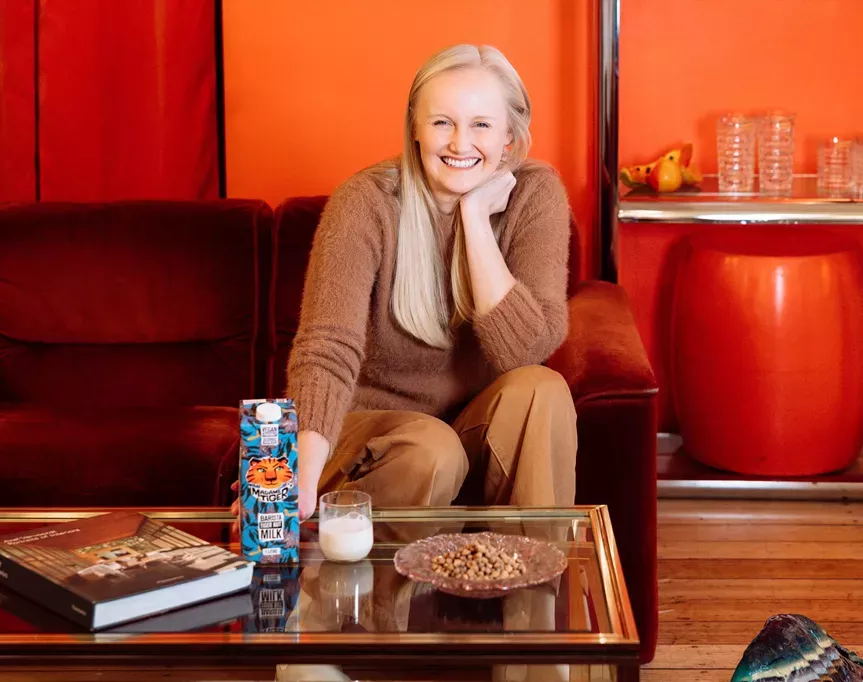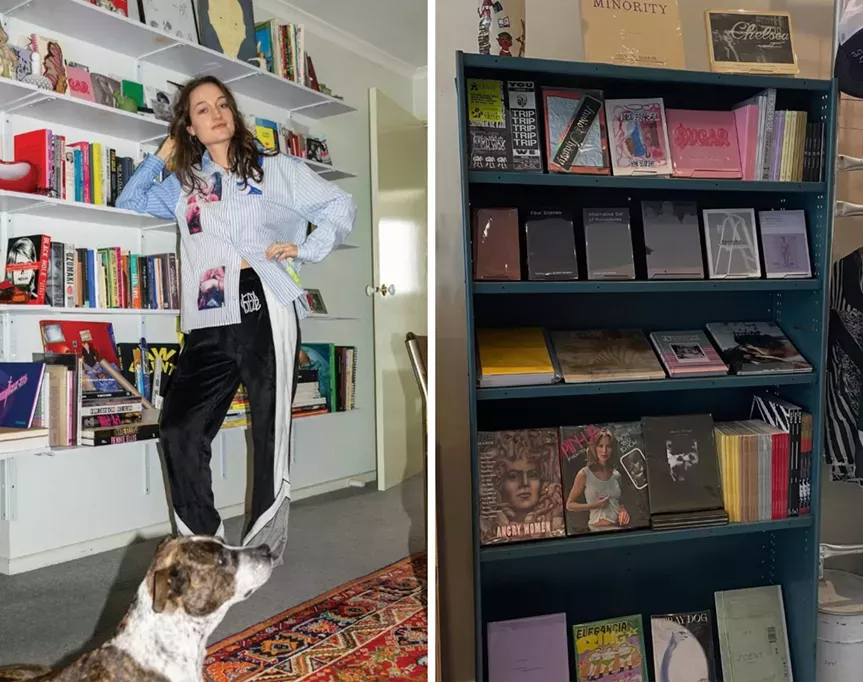humanitarian aid worker georgia mulholland’s tips on how to ethically fundraise
Plus, why culture is inseparable from survival.
If anyone understands the vital impact of fundraising, it’s artist, curator and humanitarian aid worker Georgia Mulholland. As a community organiser and Program Director of Made in Palestine – a grassroots non-profit providing direct support to families in Gaza and the West Bank – the clever lass is doing her bit to contribute support to one of the most prolific crises of our time. Most importantly, she’s doing so in a way that considers the ethics of the task at hand.
Between being involved in direct aid, crisis response and community-led organising (both on the ground and remotely), Georgia has also managed to find the time to put together the program for Unassigned Gallery’s Office Hours workshops, including a session on how to fundraise ethically. Below, Georgia explores the reasons why artists and collectives should fundraise ethically, how to overcome barriers along the way, and the importance of amplifying the voices at the centre of it all.  Georgia Mulholland
Georgia Mulholland
START WITH HUMANISATION Working directly with families in Palestine – many of whom I’ve known for years – has fundamentally shaped how I approach fundraising. When you have real relationships with the communities you’re fundraising for, there’s a responsibility to ensure their dignity, agency and consent are never compromised. For me, ethical fundraising means questioning every decision in the process: how stories are told, who is platformed, how the funds reach those who need them, and ensuring the entire team understands the weight of the work. It also means resisting extractive storytelling – avoiding trauma-porn, saviourism or narratives that reduce people to their suffering.
View this post on Instagram
APPROACH IT LIKE AN ARTIST Artists and collectives are often at the frontline of social and political issues – they’re storytellers, bridge-builders and documenters of resistance. With that visibility comes responsibility. Fundraising is not just about gathering resources – it’s about building trust, holding relationships with care and remaining accountable to the people and causes you’re connected to. Whether you're fundraising for an individual, a political movement or a community in crisis, how you do it matters. It’s about transparency, values-alignment, and ensuring the process itself reflects the world we’re trying to build and challenges the systems we seek to dismantle. Fundraising is never neutral; where money comes from and how it's distributed is inherently political – just like the role of the artist.
TAKE IT SLOW AND STEADY One of the biggest challenges is the pressure of time. In the face of urgent need, there’s an understandable impulse to act immediately – but urgency can lead to skipped steps. Ethical fundraising asks us to slow down where we can; to build relationships, seek consent, understand the context deeply, and ensure that the people most impacted are not spoken over or used for someone else’s agenda. It means questioning language, being transparent about where funds go, and asking: who is handling the money? How will it reach those in need? Is the process accountable? There’s also the emotional toll. Many of us fundraise for causes we are deeply connected to, which means holding grief, rage and helplessness on a daily basis. I’m grateful to work within a team – both in Naarm and the West Bank – who are deeply values-aligned and bring diverse expertise and sensitivities. That collective care and accountability makes this work sustainable.
View this post on Instagram
CREATE SPACE FOR VITAL VOICES During our workshop series Office Hours, we hosted a panel with community organisers who have fundraised across many spaces – First Nations communities, Palestine, Lebanon, trans and queer communities, and gender-affirming care. Despite the differences in context, we all returned to a shared set of core principles: consent, transparency, accountability, representation and values-aligned collaboration. At Made in Palestine, we prioritise amplifying the voices of those we are directly supporting – in our case, Palestinians in Gaza and the West Bank. That means ensuring stories are shared safely and on their own terms. It’s not about speaking for people, it’s about creating the space for people to speak for themselves – because narrative power belongs to those living the reality.
QUESTION YOUR INTENTIONS Start small and start with your values. Ask yourself: Why am I fundraising? Am I part of this community or am I working in solidarity? What responsibilities come with my position? From there, learn from those already doing the work. Observe approaches that feel grounded, respectful and politically-aligned. Ask questions, seek feedback and attend fundraisers – especially those organised by communities most impacted. Listen closely to collective calls to action and keep the needs of the community at the centre, not your personal visibility.
View this post on Instagram
LEAN ON YOUR TEAM When I first started volunteering with Made in Palestine in 2019 while living in the West Bank, I didn’t have the emotional tools to process the scale of what we were holding. Even now, I’d be lying if I said any of us consistently have the capacity to prioritise mental health in the face of the ongoing and devastating injustice. What helps is working collectively so that no one carries the entire weight. We celebrate small wins, knowing that even $200 raised with care and integrity can have real impact. And we try to embed collective care into our work – creating space for joy, checking in with each other, and finding moments of connection inside the heaviness. Bringing joy into fundraising – through music, shared meals and art – reminds us that culture is inseparable from survival. It’s an act of resistance and a way to remain human in the face of ongoing crises.
For more small-business stories like this, visit frankie.com.au/strictly-business, or sign up to our monthly e-newsletter. Have a small-business story you’d like to share? Pitch it to us.















.jpg&q=80&w=316&c=1&s=1)













.jpg&q=80&w=316&c=1&s=1)










